How a small Oxfordshire farm became Britain's best cheesemaker
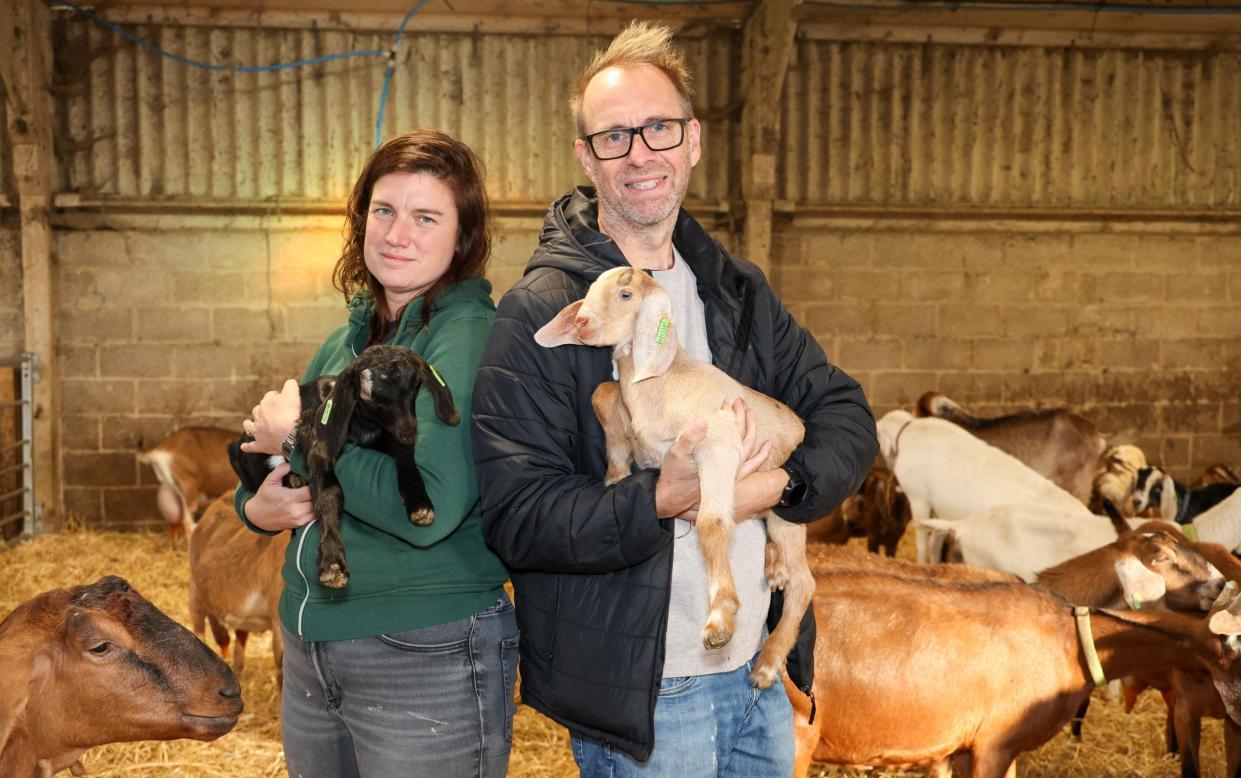
At a glitzy event streamed live around the globe, 16 international experts nibbled their way through 16 cheeses which had beaten over 4,500 others to make it to the final round – in a bid to be crowned the world’s best.
A punchy Norwegian blue won but, amid the perennial favourites like gouda, parmesan and alpine cheeses, a fresh, mild, unassuming goat’s cheese shone out. Finishing 12th – impressive considering the number of entrants – Sinodun Hill, made on the banks of the Thames in Oxfordshire, was crowned the Best British Cheese at the World Cheese Awards.
The British artisan cheese revival is a story well told. It’s a tale of almost total collapse after World War II; of processed Government cheese and the disappearance of family farms; of hundreds of farmhouse Lancashire producers dropping to just one. A few small cheesemakers stubbornly held on, joined by newcomers from the 1970s. A revived industry soon became one of the world’s most thriving.
Asked to consider British farmhouse cheese, most people will think first of clothbound cheddars and crumbly Wensleydales, then of our vast array of brilliant blues.
But, this year, Britain’s star artisan cheese is none of these. It’s a small truncated pyramid, creamy-white in appearance, inspired by the lactic goat’s cheeses of the Loire Valley. No British cheese – or indeed French – finished above it at this year’s World Cheese Awards. It finished in the top 16 for the second year running, the only cheese to feature twice in a row. “It stole my heart and drew me back constantly,” was one judge’s assessment.
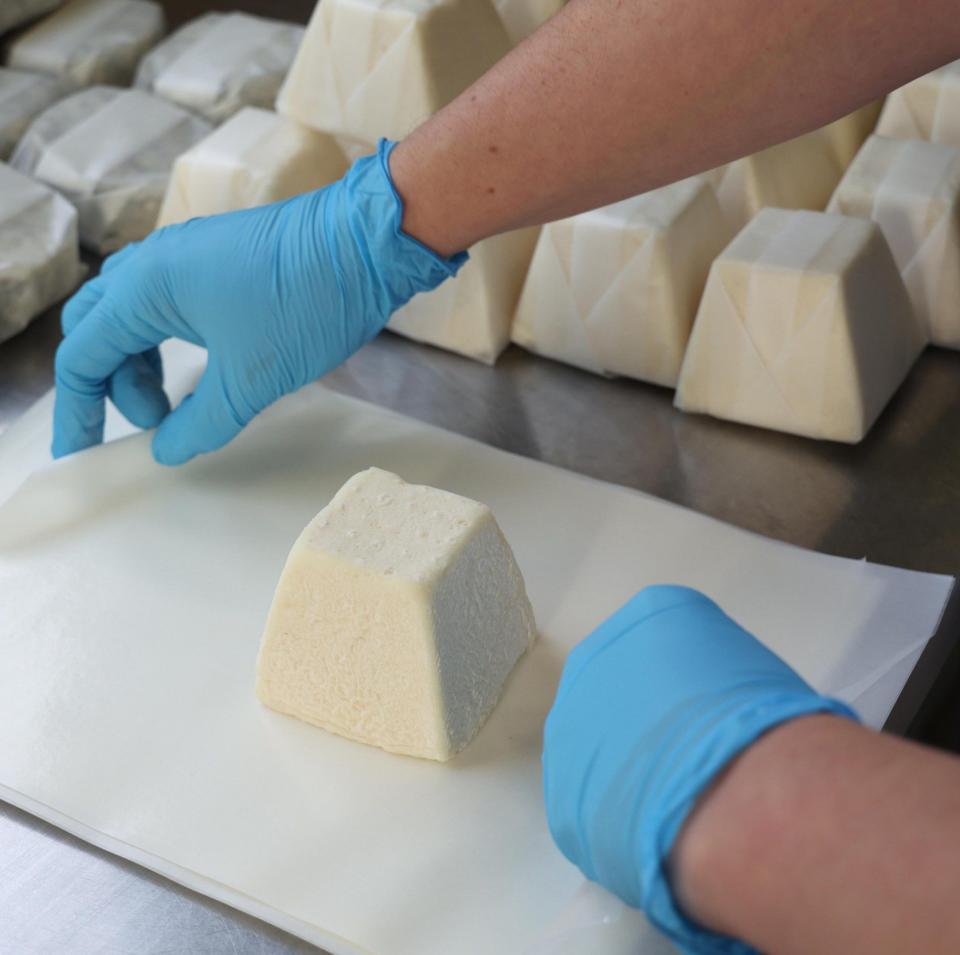
2023 was a stellar year for Britain, with 97 medals, including five super golds and 19 golds, but Sinodun Hill trumped them all. No mean feat for a cheese made near Didcot from a herd of around 200 goats, with 132 milkers. Only 10 years ago, its creators Fraser Norton and Rachel Yarrow, owners of Norton & Yarrow Cheese, had never made cheese. A decade on, they are in demand.
Behind the scenes
On a cold, sunny, autumn day at the farm near Abingdon, I’m startled to discover that Britain’s best cheese is made in a couple of converted shipping containers. I’m greeted in a tiny office by Norton – and George, the couple’s 10-week-old Yorkshire terrier. Next door, three cheesemakers in a room no bigger than an average single bedroom are busy making batches of Sinodun Hill in time for Christmas, which makes up 40 per cent of their sales. Artisan is an overused word in the food world, but it’s the only word to describe this dairy.
Sinodun Hill, named for a knoll visible from the farm, is truly a world-class cheese. It is beautiful, a pearly-white rind wrinkled by the fungus Geotrichum candidum like a cartoon image of a brain. Inside is a wonderfully fudgy, moussy texture, with a bright, yoghurt-acid flavour that gives way to grassy, fruity, almost almondy notes. No two batches are exactly the same; at certain times of year you might find natural blue moulds occurring. It is elegant and alluring.
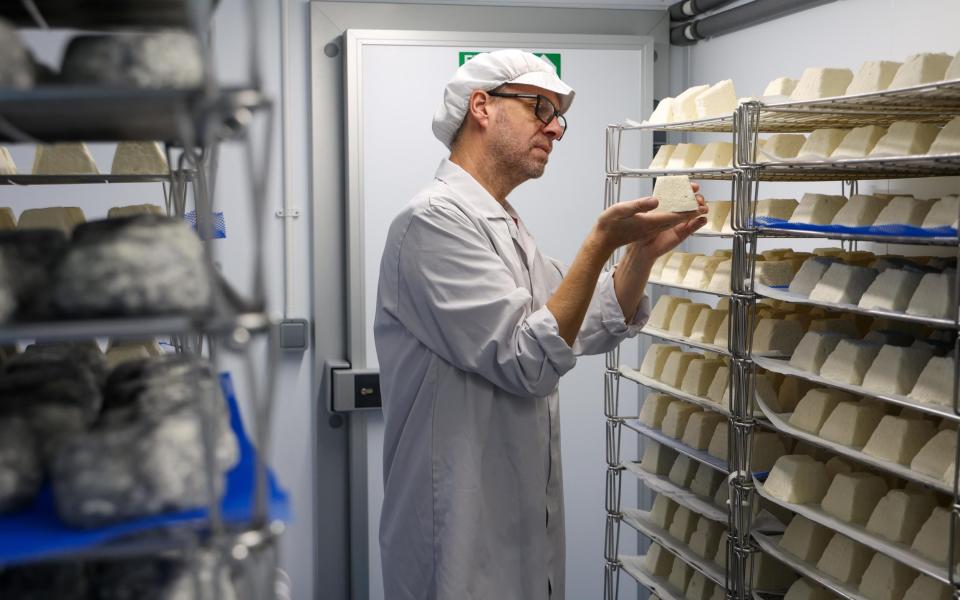
Norton and Yarrow are not your typical award-winning cheesemakers. In 2014, Yarrow was a secondary-school English teacher, Norton a project manager. Both enjoyed their careers but had a lingering sense it wasn’t their passion. On holiday in Sicily they stumbled across a copy of Women & Home magazine featuring a story on female cheesemakers, and they joked about following suit. “On the plane home we came back to it, for some reason, and it turned from a joke to a serious conversation,” Yarrow recalls.
Though they liked cheese, neither was obsessed. But Yarrow wanted to be a vet when she was younger and both had “tenuous” farming backgrounds, explains Norton, who grew up in Ayrshire and visited his grandfather’s farm in the Midlands as a child. Yarrow’s father farmed in Wales in his 20s and now makes honey. “It’s not a family tradition that’s been passed down,” Norton admits.
Despite that, cheesemaking made sense. “Who doesn’t like cheese?” says Yarrow. They started by experimenting with supermarket cow’s milk in their kitchen but, by 2016, focused on goats and launched Sinodun Hill, initially produced at the nearby Nettlebed Creamery, which produces excellent cow’s milk cheeses. Norton’s PhD in chemistry helped. The process “was strangely familiar, though completely new,” he says.
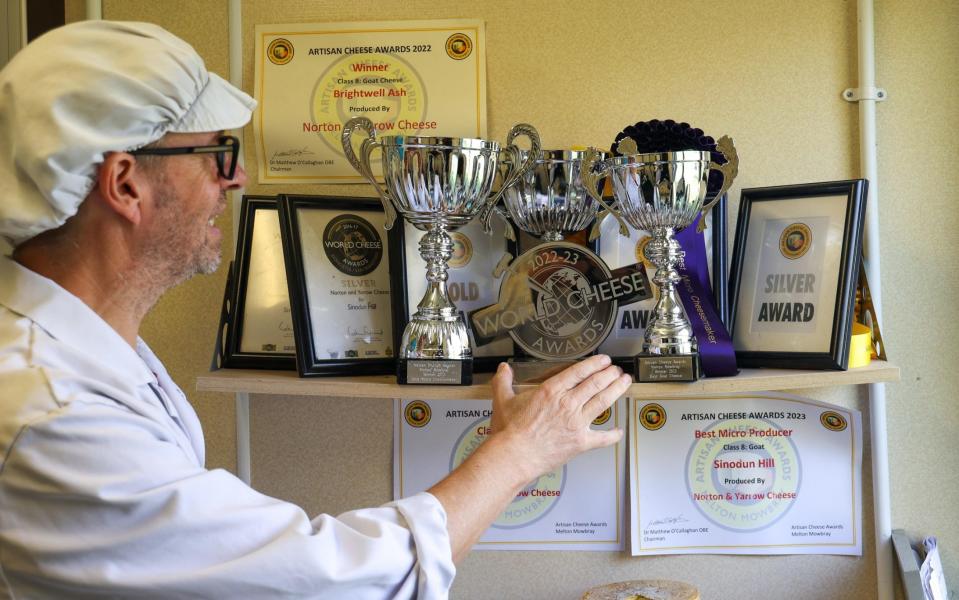
Juggling a young family with learning a new vocation wasn’t plain sailing. “We had some honest feedback in the early years,” says Yarrow. “What did [Neal’s Yard Dairy’s buyer] Bronwen Percival say? The texture of egg white? By the time we were selling it, it wasn’t absolutely horrible, but the consistency wasn’t brilliant. It took a long time.”
Yet it won a silver medal at the Artisan Cheese Awards in 2016, and best new cheese at the British Cheese Awards a year later. Cheesemaking may not have been their calling, but the couple were clearly onto something.
Wide-spread praise
Sinodun Hill stands out on a cheese counter, and indeed on a cheeseboard, because of its shape. Inspired by French cheeses like Valençay, it is a pyramid with the top chopped off, a style said to have emerged, probably apocryphally, from Napoleon’s desire to not be reminded of defeat in Egypt.
La Fromagerie, a renowned London cheesemonger, specialises in French cheeses – and yet the Marylebone site’s general manager Stephen Sweet admits that Sinodun Hill is one of his all-time favourite cheeses, a presence on his Christmas cheeseboard ever since it was introduced.
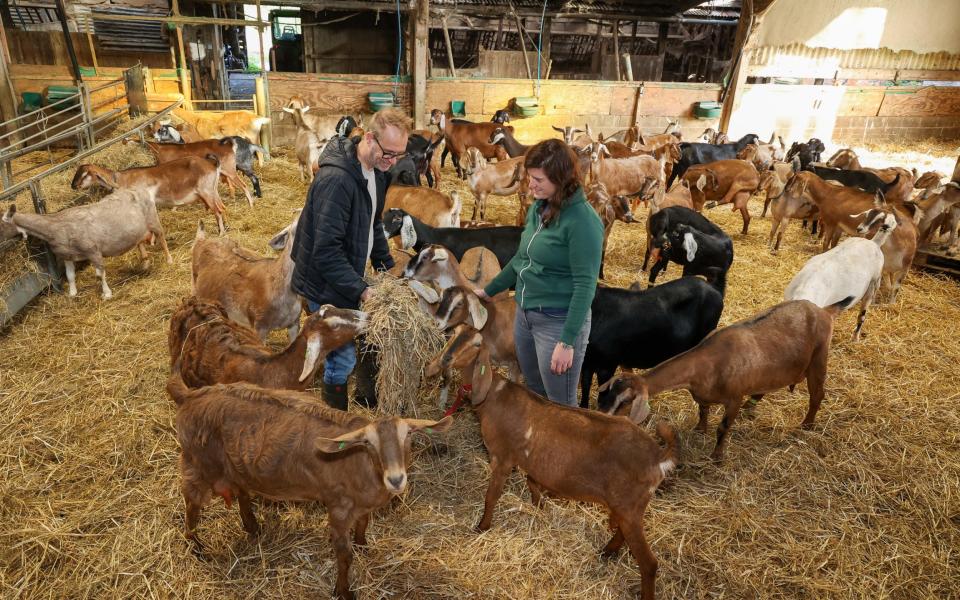
“It’s a great introduction to the wonders of goat’s milk,” he tells me. It tastes remarkably different to the ash-rinded Valençay. The English cheese is bright and fresh, the French, also wonderful, is earthier and meatier, with that lingering goatiness some people dislike. Want to convince someone to eat goat’s cheese? Sinodun Hill will do the trick.
Both sell equally well at La Fromagerie. “We have quite a large French customer base, and Sinodun Hill has a loyal following even within French communities,” says Sweet. “It’s nice to see a British cheese get such high praise.”
All about the goats
Farming is a notoriously difficult business, especially for newcomers. Land is prohibitively expensive, and Norton & Yarrow Cheese is a tenant of the Earth Trust, an environmental charity that owns the land. They remortgaged their house and, starting off with just two goats, through breeding and acquisitions they now have 200, mostly Anglo-Nubians with a few crosses.
Yarrow has just started a Nuffield farming scholarship, to study ways to improve goat dairying in the UK. “They’re brilliant cheesemakers, but it’s easy to overlook the fact that they’re excellent farmers,” says cheese expert Sam Wilkin. Though the milk is pasteurised, one can taste the quality of the grass and herbal leys the goats feed on in spring and summer, before returning to their barns, just yards from the dairy, in winter.
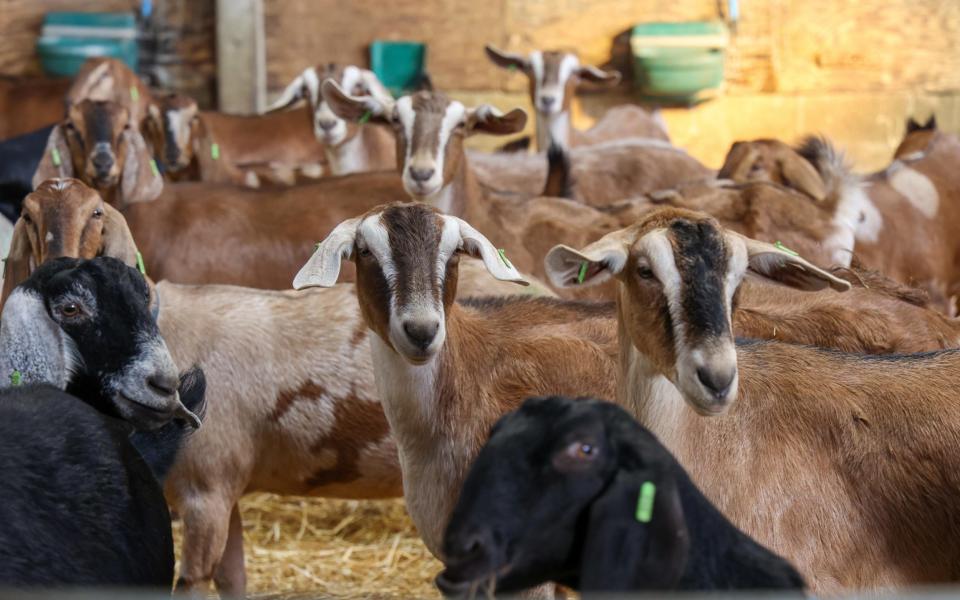
It hasn’t always been easy. The Beast from the East in 2018 almost convinced the couple to give up. Pipes froze and they had to carry 20-litre buckets of water to the dairy to make the cheese. They were tempted to return to an office job. “And yet, [we] get up the next morning, come out and do it again. We’re both very determined people, and wanted to succeed.”
Sinodun Hill, and its triumph in the world awards this year, proves they have. British cheese is far more than potent blues and crumbly territorials. Norton and Yarrow are showing there’s plenty more to offer.
Five other artisan British goat’s cheeses to try
1. Brightwell Ash, Norton & Yarrow, Oxfordshire
£10 for 130g, cheese-etc.co.uk; £12.20, nealsyarddairy.co.uk
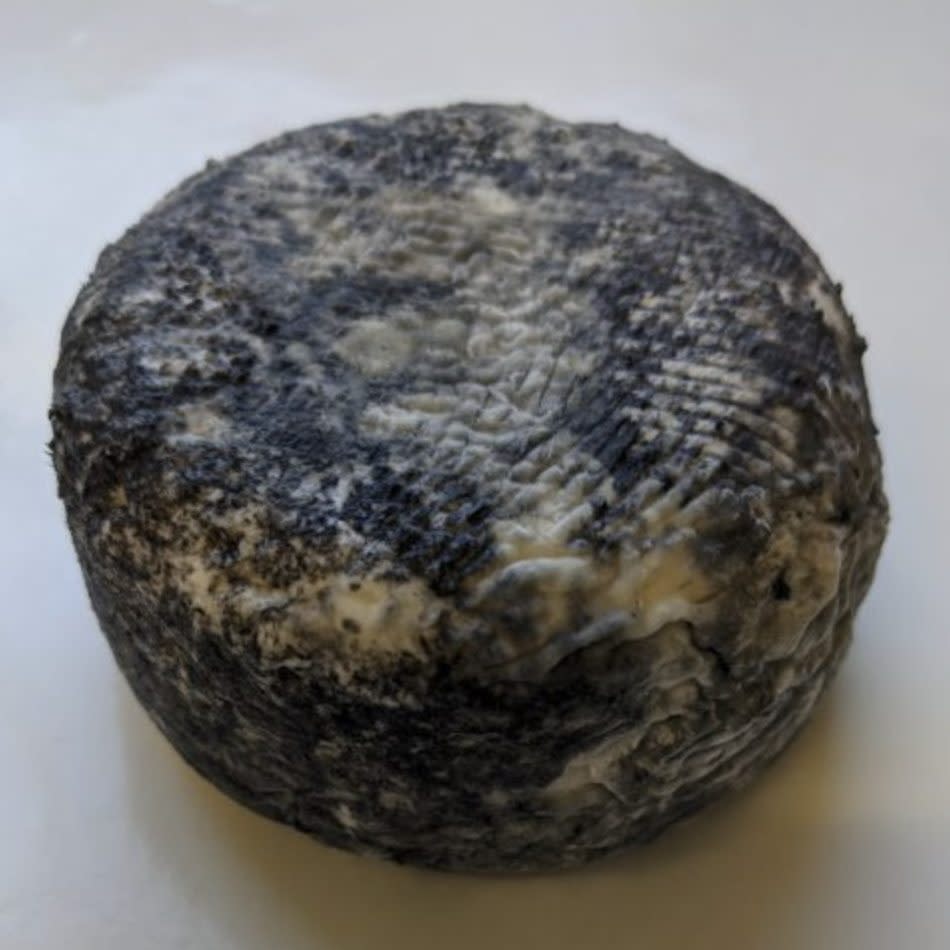
In 2018 Sinodun Hill was followed by Brightwell Ash, also named for a nearby landmark. A round puck rolled in ash, it’s bright and juicy with a rustic look. Unlike Sinodun Hill, which uses some milk brought in from a nearby farm, Brightwell Ash is made only from the farm’s milk. It won a silver at this year’s World Cheese Awards.
2. Dorstone, Neal’s Yard Creamery, Herefordshire
£12.25 for 180g, nealsyarddairy.co.uk
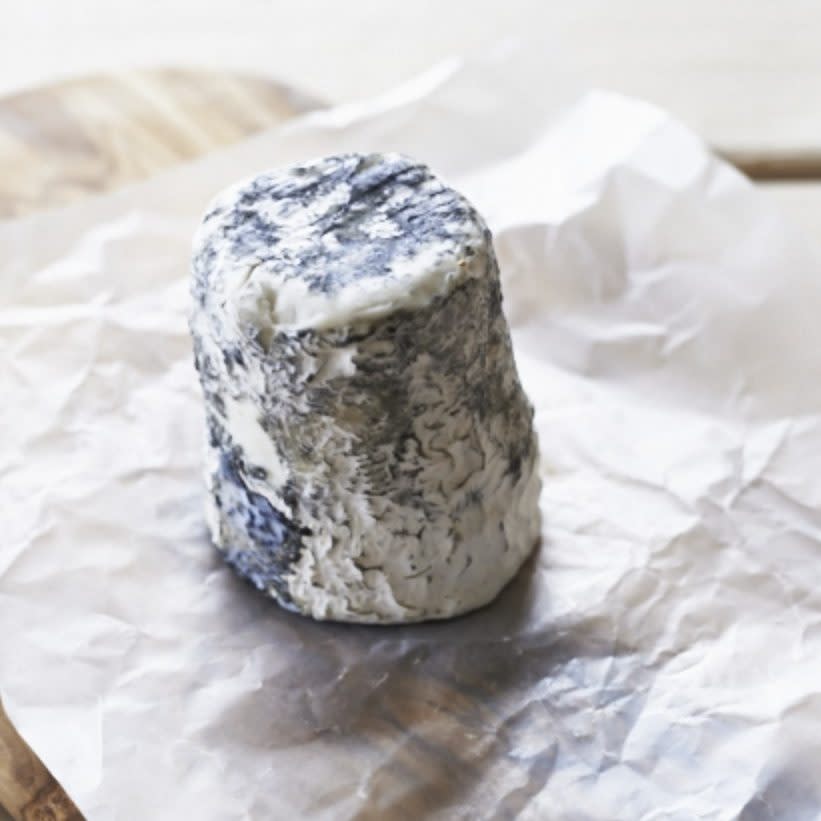
Dorstone is made by legendary cheesemaker Charlie Westhead at Neal’s Yard Creamery. With a similar wrinkly rind to Sinodun Hill, it’s turret-shaped with an ash coating, and has a light, fluffy texture and citrussy flavour.
3. Elrick Log, Errington Cheese, South Lanarkshire
£9 for 190g, erringtoncheese.com; £12.95, paxtonandwhitfield.co.uk; £13.50, lafromagerie.co.uk
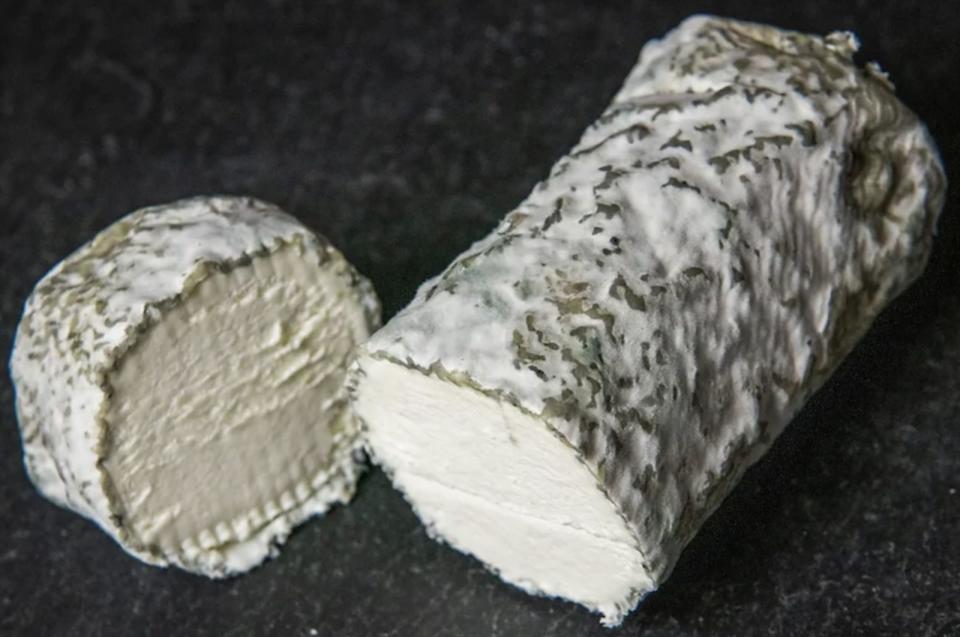
Errington Cheese produces some of the country’s finest artisan cheeses, including the manchego-like Corra Linn and rich Lanark Blue. Elrick Log is a small, French-style log that “has a good following, especially for people wanting something a little more complex, sophisticated, more powerful,” says Sweet.
4. Golden Cross, Golden Cross Cheese, East Sussex
£7.95 for 255g, cheesepleaselewes.co.uk; £11.30, lafromagerie.co.uk
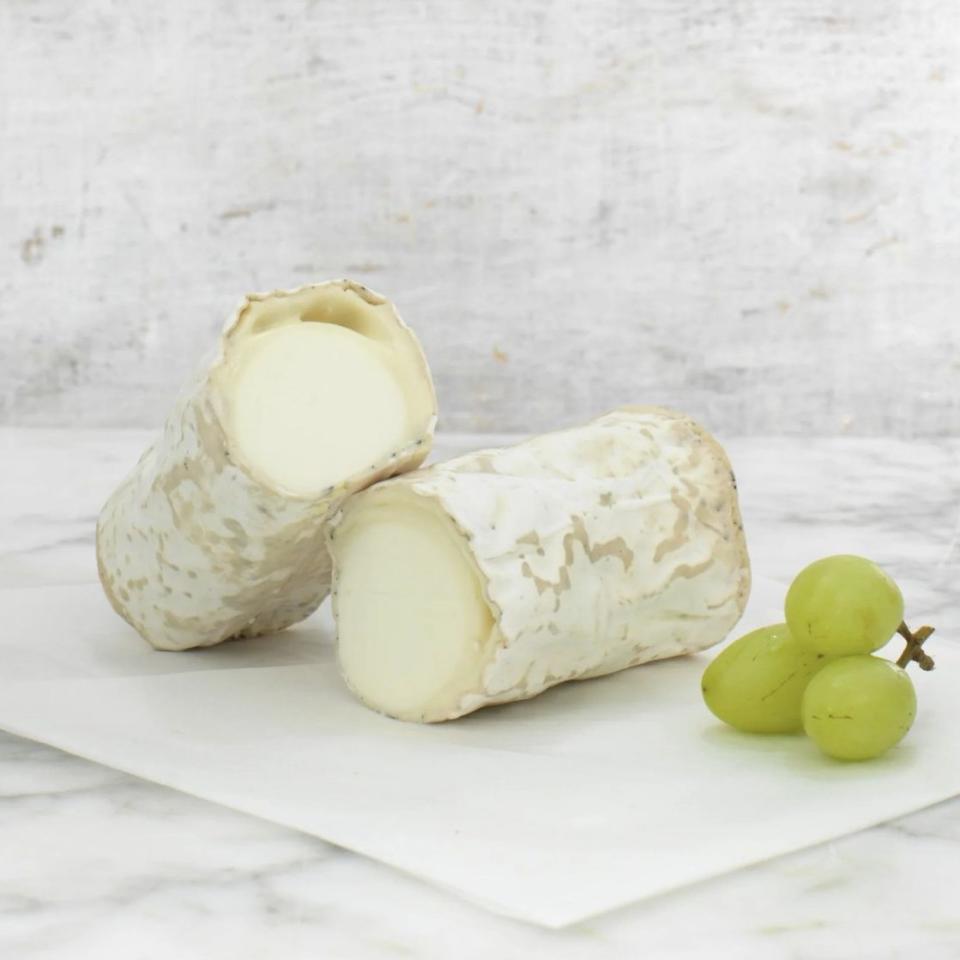
A longer log than Elrick, Golden Cross has a firm and silky texture and is fresh tasting. It’s modelled loosely on the famous French Saint- Maure de Touraine, but has a bloomy rind. “It’s very light, sweet, elegant, with honey flavours,” says Sweet. “It’s really good for cheese boards.”
5. Perroche, Neal’s Yard Creamery, Herefordshire
£7.57 for 150g, mousetrapcheese.co.uk
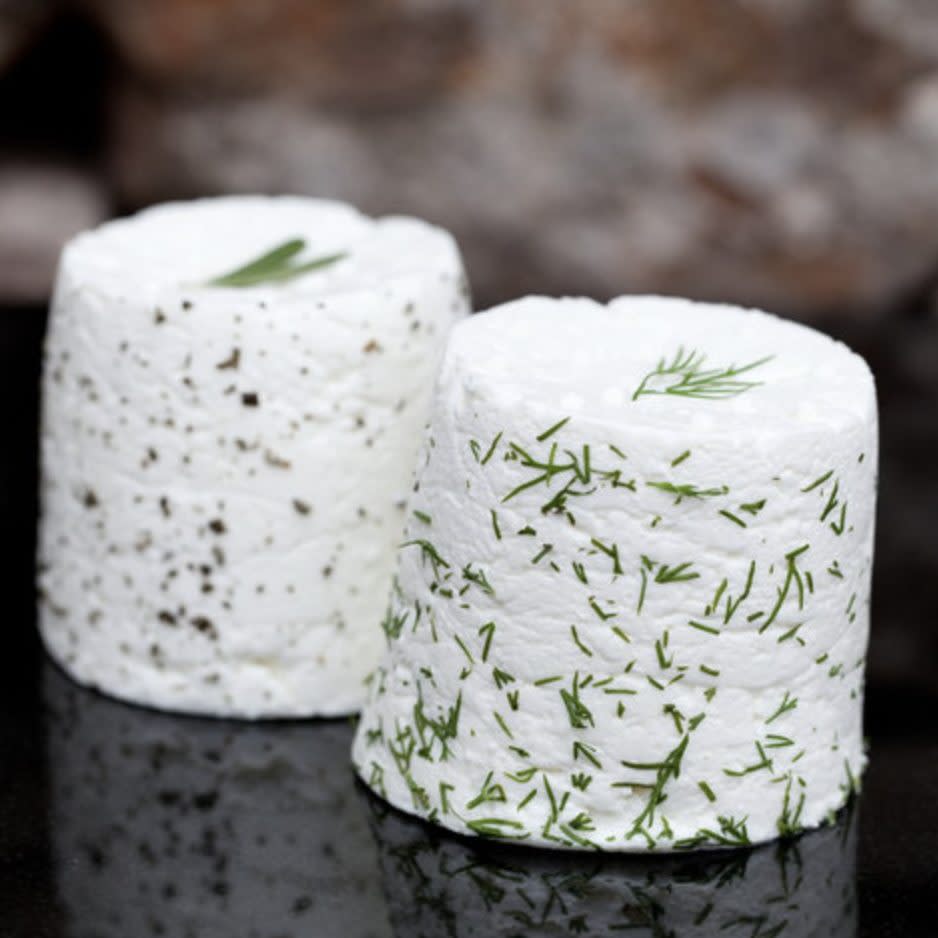
Young and fresh, perroche is lemony, soft, and almost impossibly light, with a mousse-like consistency. It can be plain, or rolled in herbs including tarragon, dill or rosemary. It makes for a perfect snack on toast.


